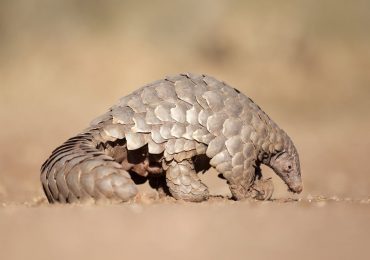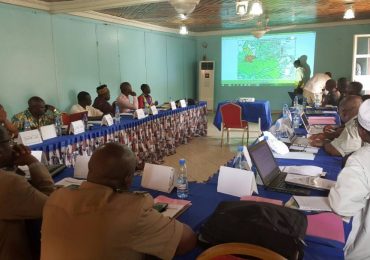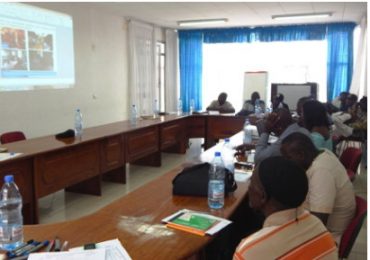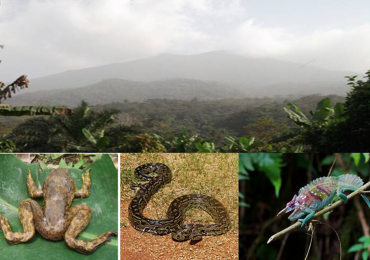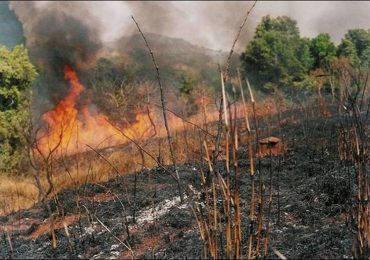An official of the Ministry of Forestry and Wildlife (MINFOF) North West Region has debunked widespread rumours that witchdoctors have developed a cure for Ebola.
“How can witchdoctors develop a cure for a disease they don’t know?” Narius Mukete Besingi, Northwest Regional Chief of Service of General Affairs, questioned.
Mukete blames such rumours on information gap especially in rural communities.
By Bertrand Ndimu Shancho
Six months after one of the world's deadliest plagues broke out in three West African nations, the region is still reeling in the desperation and the fear that the virus has provoked.
With more than 5.000 people infected in Liberia, Sierra Leone, Guinea, Nigeria and Senegal, and some 2.800 victims already dead, neighbouring countries far and near the epicentre of the outbreak are running a desperate race to keep the deadly disease outside their boundaries.
In Cameroon, authorities have closed the borders and banned movement of goods and people in and out of the country.
“Government is doing its outmost to stop the virus from entering the country. People have been trained, posters with information on the Ebola disease have been pasted and distributed and relevant information is flowing on radio and TV channels,” said Dr. Orok J. Bate, District Medical Officer for Mamfe.
Dr. Orok, however, said some literate, educated health personnel are still superstitious.
“Some of them are still using salted water to bathe,” he said.
The DMO said health personnel working in suspected areas are vulnerable.
He told The Green Vision that the population in Manyu are taking the measures seriously.
“Be alert, follow what health personnel are saying,” the doctor cautioned.
Despite the Ebola threat, Orok spoke well of Manyu people as far as public health is concerned.
“There is no serious health issue in the Division. There is pipe-borne water, and village health committees that are very strict with hygiene,” said the DMO.
In the North West, the Regional Delegate of Forestry and Wildlife, Mrs. Grace Mbah, passed a circular to all Divisional Delegates and conservators prohibiting entry into game reserves and other gorilla/wildlife habitats as a preventive measure against contracting Ebola.
Copying the Ministry of Forestry and Wildlife (MINFOF), the Northwest Governor, Senior Divisional Officers and the Regional Delegate of Public Health, Mrs. Mbah, calls on all Divisional Delegates and conservators to carry out massive sensitization of communities most especially those around game reserves.
“No eating of dead animals found in the forest, no hunting and eating of apes (gorillas, baboons, drills, monkeys, etc) and bats,” says the communiqué.
The Delegate beseeches the Forestry officials to work closely with Public Health counterparts and to report cases of dead apes and other wildlife species found in the forest.
The MINFOF Northwest Regional Chief of Service of General Affairs underscored the fact that the restriction into game reserves and wildlife habitats is limited to hunters and adjacent communities and not to eco-guards, tourists and bio-monitors.
“This is not to stop forest survey, patrol and bio-monitoring activities in these reserves. Eco-guards, biologists and bio-monitors are enlightened about this disease and will know how to handle the situation. Ebola is not an air-borne disease. It comes via close contact with the animals and one can never define how far these animals go most especially the bats. The local inhabitants and hunters have little information about the contraction of this disease. For instance, a hunter who takes his dogs into the forest and the dogs eat up a dead infected animal. This means that any child who plays with these dogs will automatically contract the virus,” Mukete said.
He emphasised that tourists are also not restricted from getting into these reserves because proper security measures are being taken to ensure that tourists from infested countries are not allowed into the country.
“Tourists don’t even come close to the animals nor touch them,” said Mukete.
Mukete explained that quarantines set up at the borders for medical screening are good but not enough to halt the spread of the disease because it is more likely to enter the country via apes and bats than humans as there is no limit in animal migration.
The Conservator of the Kagwene Gorilla Sanctuary, Chuyeh Vitalis Tuncha, immediately set out to map strategies to embark on a more aggressive sensitization campaign in forest adjacent communities.
Kagwene Gorilla Sanctuary is a reserve home to over 25 Cross River gorillas.
“Ebola is very contagious, so we are coming up with a programme and will within the next fortnight embark on a door-to-door sensitization to make sure that the people actually understand what is being said and their role in the fight against Ebola,” the conservator said.
Adjacent villages to the Kagwene Gorilla Sanctuary have also understood the raison d’être of this restriction.
“If they prevent us from going very close to these animals, it is in our own interest and we have no option but to adhere to it because it affects us and we will hate the virus to come into the country through us,” said Serika Lucas, a notable of Ngo’oh village in Njikwa Sub-division.


